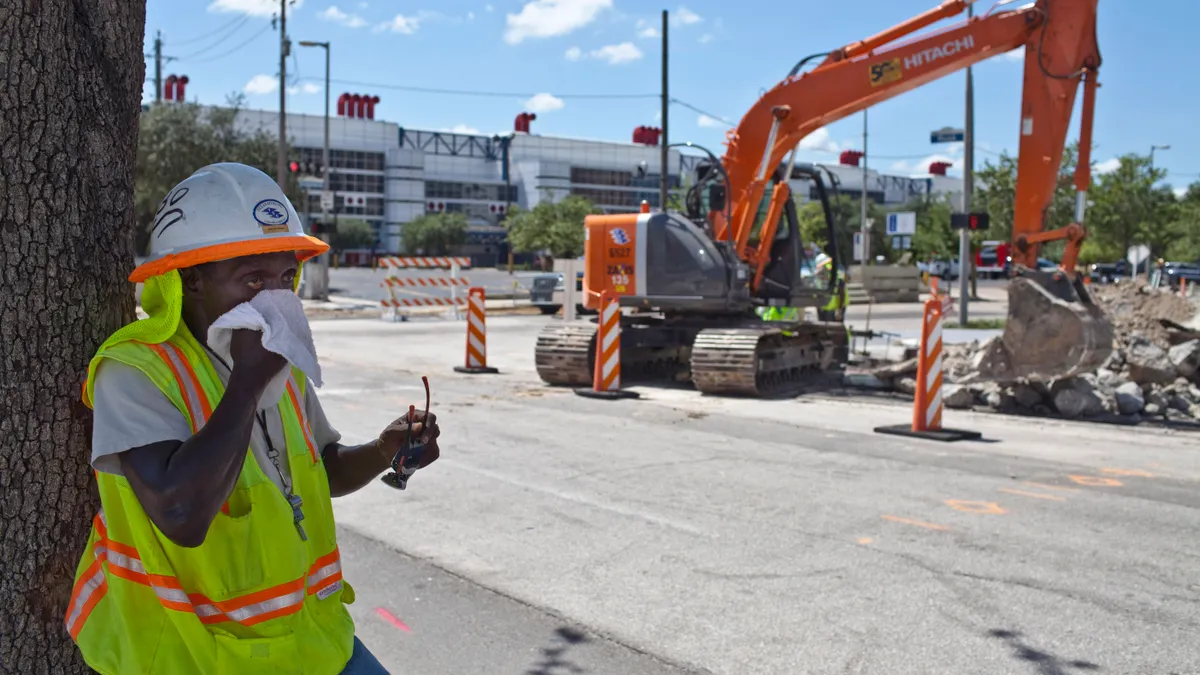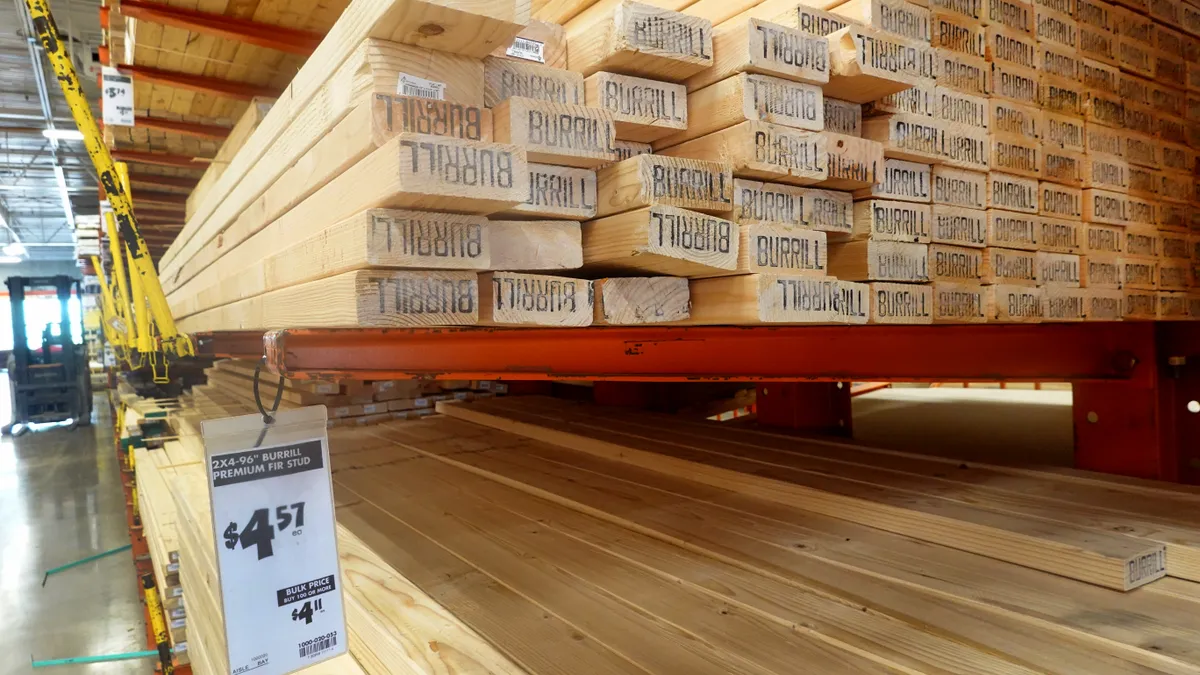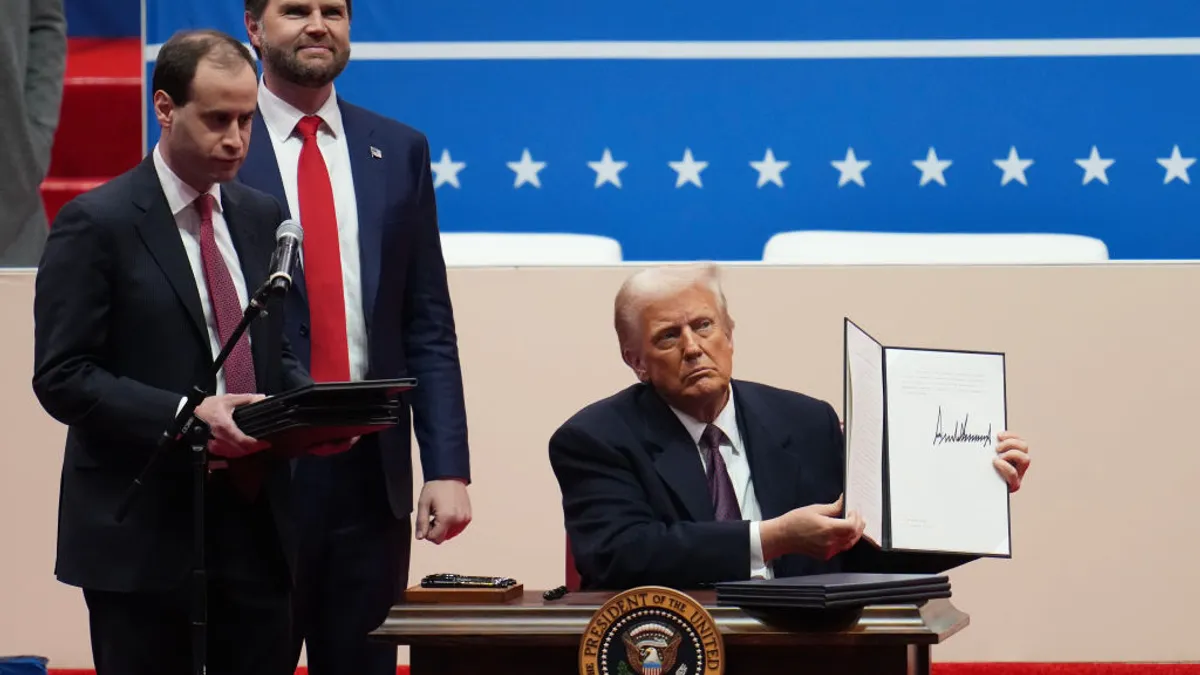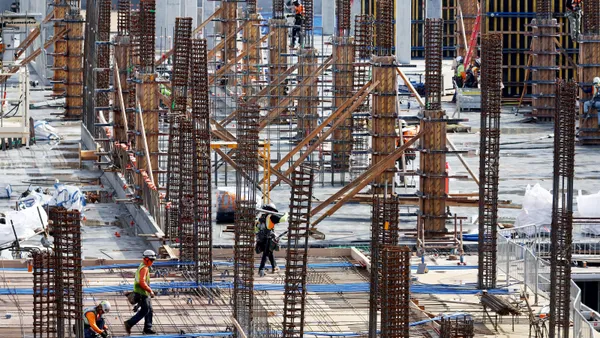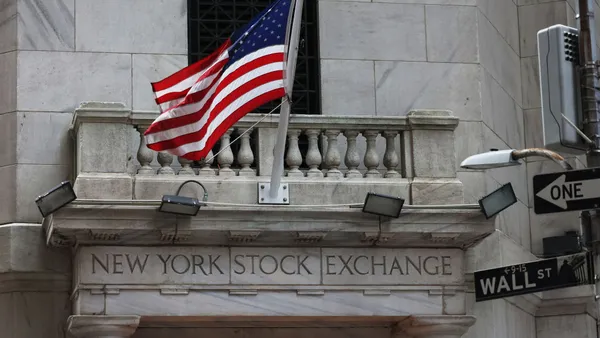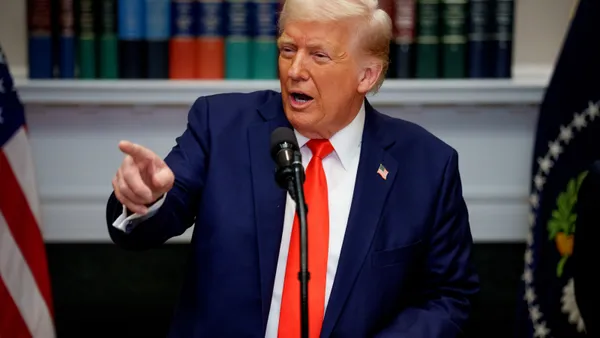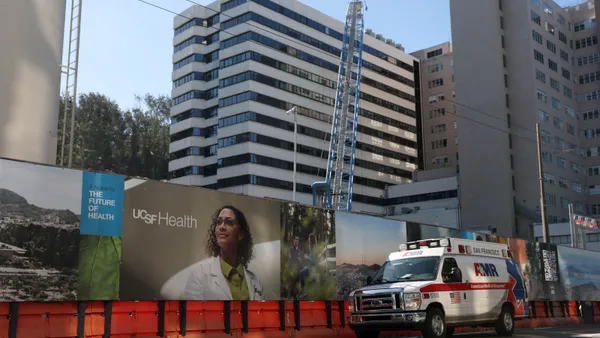Dive Brief:
- The Federal Reserve will probably fail to steer the economy away from a recession as it fights the worst inflation in four decades by aggressively withdrawing stimulus, according to 73% of economists surveyed this month by the National Association for Business Economics (NABE).
- Nearly half of economists (47%) believe a downturn will begin by the first quarter of next year, while 19% believe the economy is already shrinking, the NABE found in a survey released Monday.
- “Panelists are not confident that the Federal Reserve will be able to bring inflation down to its 2% goal within the next two years without triggering a recession,” NABE Policy Survey Chair Juhi Dhawan said in a statement.
Dive Insight:
Policymakers since March have raised the main interest rate during four consecutive meetings from a record, near-zero low. In recent weeks they have flagged the prospect of another increase of 50 or 75 basis points during their next two-day meeting ending Sept. 21. A basis point is one hundredth of a percentage point.
More than half of economists (52%) believe the central bank will raise the upper end of the federal funds rate to between 3.5% and 4.25% before beginning to cut borrowing costs, NABE said.
Economists disagree on where the main interest rate will end up by the end of 2024: 42% expect it will be between 2.5% and 3.25%, while 27% forecast 1.5% and 2.25%, and 20% predict 3.5% or higher at that time, NABE said.
Fifty-two percent of economists are not very confident — and 21% are not at all confident — that the Fed during the next two years will reduce inflation to its 2% goal without triggering recession, NABE said.
Respondents reflecting on aggressive Fed tightening “appear to express the view that this all may be too little too late,” Julia Pollak, chief economist at ZipRecruiter and an NABE economic policy survey analyst said during a webcast. “They are not confident at all that the Fed will manage to achieve a ‘soft landing,’” or reduce inflation without causing recession.



